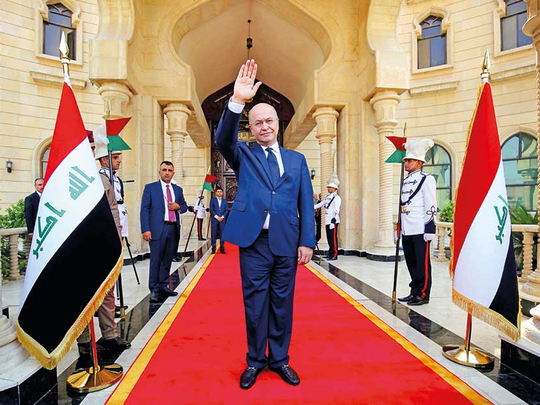
Dubai: The appointment of Adel Abdul Mahdi, an independent veteran Shiite politician, to form the new government in Iraq ends the 13-year grip on power by the major Shiite political party of Al Dawa, Iraqi analysts have said.
But, Iraqi political parties should not exert pressure on Abdul Mahdi, who had sought a free hand in choosing his cabinet without any political or religious pressure, the analysts said.
“One of his (Mahdi’s) conditions to accept the position of Prime Minister was to be able to choose qualified technocrats and those who are capable of carrying out their duties independently based on government directives,” said Halim Al Aaraji, an Iraqi journalist and analyst based in Baghdad.
“Whether he can achieve this or not is yet to be seen,” Al Aaraji told Gulf News.
Abdul Mahdi, a former member of the Supreme Islamic Iraqi Council, was appointed Prime Minister by Iraq’s new President Barham Salih on Tuesday.
According to the unofficial agreement after the US invasion of Iraq, Iraq’s presidency goes to a Kurd, while the Prime minister’s post to a Shiite and the parliament speaker’s post to a Sunni.
Abdul Mahdi is the first politician from outside Al Dawa party to hold the position in the last 13 years. All former premiers, Ebrahim Al Jaafari, Nouri Al Maliki and Haider Al Abadi, are members of Al Dawa party.
Iraqi analyst Sanad Al Shamari told Iraqi press that Abdul Mahdi’s government could bring change in Iraq by bridging the gap between the government and the people by providing better services. Abdul Mahdi, Shamari said, enjoys good relations with various political parties, as well as Arab and foreign countries.
“Political parties should not exert undue pressure on the Abdul Mahdi government to pick certain ministers,” so his government can provide better circumstances to the Iraqis.












